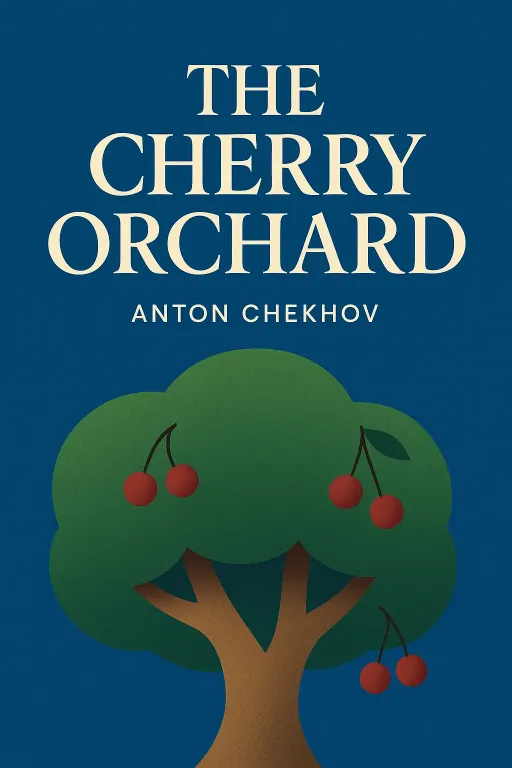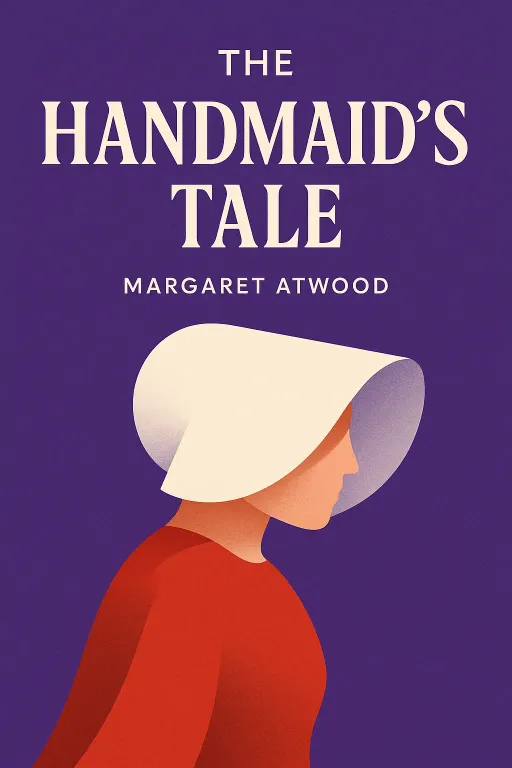
The Cherry Orchard
10 minIntroduction
Narrator: Imagine an entire world encapsulated in a single, sprawling cherry orchard. Its white blossoms represent a beautiful, cherished past, a symbol of aristocratic grace and childhood innocence. But beneath the soil, the roots are rotting. Debts are piling up, the modern world is knocking at the door with axes and blueprints, and the family that owns it is paralyzed, lost in a fog of nostalgia and indecision. This is the central, poignant conflict at the heart of Anton Chekhov's final masterpiece, The Cherry Orchard. This particular edition offers a unique window into the play's creation, presenting not one, but two complete versions—the author's original 1903 script and the revised 1904 text performed at the Moscow Art Theatre—revealing the subtle but profound shifts that shaped this landmark of modern drama.
A Family Adrift in a Sea of Nostalgia
Key Insight 1
Narrator: The play’s central crisis is the impending auction of the Ranevskaya family estate. The matriarch, Lyubov Andreevna, returns to Russia after years abroad, fleeing personal tragedy and financial ruin. She and her brother, Gaev, are emotionally tethered to the estate, especially its magnificent cherry orchard, which for them is a living monument to their idyllic past. However, this profound emotional attachment renders them incapable of confronting the grim reality of their situation. They are drowning in debt, yet they continue to live with a sense of aristocratic entitlement, spending money they do not have and ignoring practical advice.
Lyubov’s paralysis is rooted in a history of immense personal loss. Years earlier, her husband died from excessive drinking, and shortly after, her young son, Grisha, drowned in the river on the estate. Fleeing this unbearable grief, she began a tumultuous affair in Paris with a man who exploited her financially and emotionally, ultimately abandoning her and driving her to a suicide attempt. Her return to the cherry orchard is not a return to a solution, but a retreat into the last remaining sanctuary of her memory, a place of "childhood, my purity." This backstory explains her inability to make rational decisions; every practical discussion about the estate is an assault on the only emotional refuge she has left.
The Clash of Worlds Personified by Lopakhin
Key Insight 2
Narrator: Embodying the forces of change is Yermolai Lopakhin, a wealthy merchant whose father was once a serf on the Ranevskaya estate. He is the voice of pragmatic, capitalist modernity. He presents the family with a clear, viable plan to save themselves: chop down the old, unproductive cherry orchard and lease the land for the construction of summer villas. This, he calculates, would generate a substantial annual income. For Lyubov and Gaev, however, this proposal is sacrilege. The idea of destroying the orchard, a symbol of beauty and family history, for something as "vulgar" as summer cottages is unthinkable.
Lopakhin is not a simple villain or a crude opportunist. Chekhov insisted he must be portrayed as a "dignified, intelligent individual." His connection to the family is deeply personal and complex. He vividly recalls a moment from his childhood when his own father, a shopkeeper, struck him. Lyubov, then a young woman, found him with a bloody nose, took him to the nursery washstand, and comforted him, saying, "Don't cry, peasant-boy, it'll go away by your wedding day." This act of kindness forged a bond of genuine affection and gratitude that persists into adulthood. He sincerely wants to help the family that once showed him compassion, but he cannot bridge the ideological chasm that separates his forward-looking pragmatism from their backward-glancing sentimentality. His eventual purchase of the orchard is therefore both a personal triumph and a bittersweet tragedy.
The Ambiguity of Genre and the Power of the Unspoken
Key Insight 3
Narrator: One of the most enduring debates surrounding The Cherry Orchard is its genre. Chekhov adamantly called it "a comedy, in places even a farce." Yet its first and most famous director, Konstantin Stanislavsky, interpreted it as a profound tragedy. This fundamental disagreement highlights the play's revolutionary nature. Chekhov’s drama unfolds not in grand actions, but in subtle, indirect details, non-sequiturs, and abrupt shifts in tone. The serious is often undercut by the absurd, and moments of comedy are tinged with deep pathos.
Chekhov’s meticulous attention to detail was legendary and key to understanding his characters. An anecdote from the rehearsals of his earlier play, Uncle Vanya, perfectly illustrates this. Stanislavsky, playing Vanya, initially conceived of the character as a rough, disheveled country gentleman. Chekhov was incensed, pointing to a single stage direction for Vanya's first entrance: "Sits on the bench and straightens his foppish tie." This one detail, he explained, revealed Vanya as a cultured, elegant man who cared about his appearance, a man whose frustrations were those of a refined soul trapped in provincial life. This focus on the "foppish tie"—the small, revealing gesture—is central to Chekhov's style. In The Cherry Orchard, the true drama lies in what is not said, in the failed proposals, the awkward pauses, and the conversations that go nowhere, painting a portrait of a society communicating past one another on the edge of a precipice.
Two Scripts Reveal a Different Play
Key Insight 4
Narrator: This edition’s inclusion of both the 1903 and 1904 scripts offers a rare glimpse into the play's evolution and reveals how directorial choices may have altered Chekhov's original intent. The 1904 version, shaped by rehearsals with Stanislavsky, became the standard text, but the original 1903 script presents a different set of dynamics. For example, in the 1903 text, Act Four does not take place in the nursery. This makes the nursery in Act One a far more powerful space—a room that has been sealed for years, a time capsule of memory and grief over the death of Lyubov's son. Its reopening becomes the catalyst for the emotional turmoil that follows.
Furthermore, key character moments were cut or changed. In the original script, the governess Charlotta performs a magic trick in Act One that subtly mocks the unspoken tension surrounding Varya’s hope for a proposal from Lopakhin, establishing her as a Shakespearean fool who speaks uncomfortable truths. A poignant scene between Charlotta and the ancient servant Firs, where they share stories of their lost lives, was also cut. Restoring these moments, as the 1903 script does, provides a more nuanced understanding of the characters and their relationships, suggesting that the play as commonly performed may be a departure from the author's more delicate and perhaps more purely comic vision.
The Inevitable Fall and the Sound of a Breaking String
Key Insight 5
Narrator: Ultimately, the family's inaction seals their fate. While they host a pointless party, Lopakhin returns from the auction. With a mixture of triumph and anguish, he announces, "The cherry orchard’s mine now! Mine!" The sound of Varya throwing the house keys to the floor signals the definitive transfer of power. The old order has fallen, not to a villain, but to the inescapable march of time and economics. The play concludes with the family scattering to their uncertain futures, leaving the estate behind.
In the final, haunting moments, the house is locked and empty. The family has departed, but they have forgotten one thing: the elderly servant, Firs. He wanders into the silent room, muttering that life has passed him by "as if I never lived." He lies down on a sofa, motionless, as the audience hears the distant, melancholy sound of an axe striking a tree. This is preceded by a mysterious sound Chekhov describes as "a breaking string, dying away, sad." It is the sound of an entire world ending, a poignant elegy for a lost era and a stark reminder of the human cost of social change.
Conclusion
Narrator: The single most important takeaway from The Cherry Orchard is the tragic, and at times darkly comic, portrait of humanity's inability to adapt to inevitable change. The play is not merely about the decline of the Russian aristocracy; it is a timeless study of how clinging to a romanticized past can prevent the creation of a viable future. The characters are not evil, but they are trapped by their own inertia, their memories, and their class, making their downfall both predictable and heartbreaking.
Chekhov’s final play challenges us to look at our own lives and societies and ask: what are our cherry orchards? What beautiful, cherished, but ultimately unsustainable things do we cling to, preventing us from moving forward? The sound of the axe in the final scene is a powerful and unsettling reminder that progress is often indifferent to nostalgia, and that the future, for better or worse, waits for no one.









